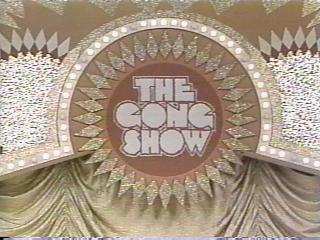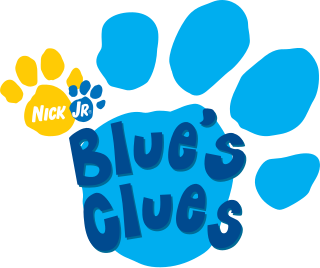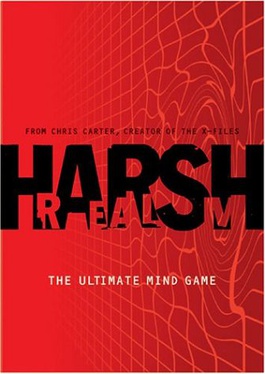Related Research Articles

The Doctor, an Emergency Medical Hologram (EMH), is a fictional character portrayed by actor Robert Picardo in the television series Star Trek: Voyager, first aired on UPN between 1995 and 2001. He is an artificial intelligence manifest as a holographic projection, and designed to be a short-term adjunct to medical staff in emergency situations. However, when the USS Voyager is stranded on the far side of the galaxy without medical personnel, he is forced to act as the starship's permanent chief medical officer. In an example of the Star Trek franchise's exploration of artificial intelligence, a simple software program becomes a major character in the show.

Sesame Street is an American educational children's television series that combines live-action, sketch comedy, animation and puppetry. It is produced by Sesame Workshop and was created by Joan Ganz Cooney and Lloyd Morrisett. It is known for its images communicated through the use of Jim Henson's Muppets, and includes short films, with humor and cultural references. It premiered on November 10, 1969, to positive reviews, some controversy, and high viewership. It has aired on the United States national public television provider PBS since its debut, with its first run moving to premium channel HBO on January 16, 2016, then its sister streaming service Max in 2020.

The Gong Show is an American amateur talent contest franchised by Sony Pictures Television to many countries. It was broadcast on NBC's daytime schedule from June 14, 1976, through July 21, 1978, and in first-run syndication from 1976 to 1980 and 1988 to 1989, and was revived in 2017 for broadcast on ABC. The show was created and originally produced by Chuck Barris, who also served as host for the NBC run and from 1977 to 1980 in syndication. Its most recent version was executive-produced by Will Arnett and hosted by Tommy Maitland, a fictional character performed by Mike Myers. The Gong Show is known for its absurdist humor and style, with the actual competition secondary to the often outlandish acts presented; a small cash prize has typically been awarded to each show's winner.

The preschool educational television program Sesame Street was first aired on public television stations on November 10, 1969, and reached its 54th season in 2023. The history of Sesame Street has reflected changing attitudes to developmental psychology, early childhood education, and cultural diversity. Featuring Jim Henson's Muppets, animation, live shorts, humor and celebrity appearances, it was the first television program of its kind to base its content and production values on laboratory and formative research, and the first to include a curriculum "detailed or stated in terms of measurable outcomes". Initial responses to the show included adulatory reviews, some controversy and high ratings. By its 40th anniversary in 2009, Sesame Street was broadcast in over 120 countries, and 20 independent international versions had been produced. It has won eleven Grammys and over 150 Emmys in its history—more than any other children's show.
In computer science, a NOP, no-op, or NOOP is a machine language instruction and its assembly language mnemonic, programming language statement, or computer protocol command that does nothing.

Blue's Clues is an American live-action/animated interactive educational children's television series created by Traci Paige Johnson, Todd Kessler, and Angela C. Santomero. It premiered on Nickelodeon's Nick Jr. block on September 8, 1996, and concluded its run on August 6, 2006, with a total of six seasons and 143 episodes. The original host of the show was Steve Burns, who left in 2002 and was replaced by Donovan Patton for the fifth and sixth seasons. The show follows an animated blue-spotted dog named Blue as she leaves a trail of clues/paw prints for the host and the viewers to figure out her plans for the day.
The Rose d'Or is an international awards festival in entertainment broadcasting and programming. The European Broadcasting Union (EBU) first acquired the Rose d’Or in 1961, when it was created by Swiss Television in the lakeside city of Montreux. The awards stayed with the EBU for almost 40 years. The EBU re-acquired the awards in 2013 and successfully re-launched the event that year in Brussels, then relocated to Berlin from 2014 to 2018.

Harsh Realm is an American science fiction television series about humans trapped inside a virtual reality simulation. It was developed by Chris Carter, creator of The X-Files and Millennium, and began airing on the Fox Network on October 8, 1999. The series fared poorly in the ratings and was removed from the schedule after three of its nine episodes had aired. The remaining six episodes premiered on the FX Network. Repeats of the series began airing Fall 2007 on CBC Country Canada.

A checklist is a type of job aid used in repetitive tasks to reduce failure by compensating for potential limits of human memory and attention. Checklists are used both to ensure that safety-critical system preparations are carried out completely and in the correct order, and in less critical applications to ensure that no step is left out of a procedure. they help to ensure consistency and completeness in carrying out a task. A basic example is the "to do list". A more advanced checklist would be a schedule, which lays out tasks to be done according to time of day or other factors, or a pre-flight checklist for an airliner, which should ensure a safe take-off.
Formal equivalence checking process is a part of electronic design automation (EDA), commonly used during the development of digital integrated circuits, to formally prove that two representations of a circuit design exhibit exactly the same behavior.

An "all persons fictitious" disclaimer in a work of media states that the persons portrayed in it are not based on real people. This is done mostly on realistic films and television programs to reduce the possibility of legal action for libel from any person who believes that they have been defamed by their portrayal in the work, whether portrayed under their real name or a different name. The wording of this disclaimer varies, and differs from jurisdiction to jurisdiction, as does its legal effectiveness.

In the performing arts industry such as theatre, film, or television, casting, or a casting call, is a pre-production process for selecting a certain type of actor, dancer, singer, or extra for a particular role or part in a script, screenplay, or teleplay. This process may be used for a motion picture, television program, documentary film, music video, play, or advertisement, intended for an audience.
In computing, data validation or input validation is the process of ensuring data has undergone data cleansing to confirm they have data quality, that is, that they are both correct and useful. It uses routines, often called "validation rules", "validation constraints", or "check routines", that check for correctness, meaningfulness, and security of data that are input to the system. The rules may be implemented through the automated facilities of a data dictionary, or by the inclusion of explicit application program validation logic of the computer and its application.
Television crew positions are derived from those of film crew, but with several differences.

The Millionaire is an American anthology series that aired on CBS from 1955 to 1960. It was originally sponsored by Colgate-Palmolive. The series, produced by Don Fedderson and Fred Henry, explored the ways that sudden and unexpected wealth changed life, for better or for worse. It told the stories of people who were given one million dollars from a benefactor who insisted they must never know his identity, with one exception.

Big Brother is the Dutch version of the international reality television franchise Big Brother. It created a reality TV-show format where contestants live in an isolated house, and try to avoid being evicted by viewers to win a prize at the end. The original Dutch version of the show was initially aired from 1999 to 2006 for six regular seasons, and two celebrity editions. Many international versions have also been developed following the same structure. In 2021, the cooperation season with Flanders of Big Brother returned in the Netherlands after an absence of 14 years.
A script coordinator is a role in the production of a film or television series. The script coordinator is responsible for producing each draft of the script and annotating it for ease of use for the production team.

This American Life is an American television series based on the radio program of the same name. Like the radio program, the series is hosted by Ira Glass. The series premiered on March 22, 2007. Two seasons of the show aired on Showtime. The second season finale aired on September 3, 2008, and Showtime aired one final episode in May 2009.

Check It Out! with Dr. Steve Brule is an American comedy television series starring John C. Reilly as Dr. Steve Brule. The show is a spin-off of Tim and Eric Awesome Show, Great Job!, originating in a segment called Brule's Rules. The series premiered on Cartoon Network's late-night programming block, Adult Swim, on May 16, 2010.
"Episode 6188" is the 6188th episode of the Australian soap opera Neighbours. It premiered on Eleven on 22 June 2011. The episode was written by Sarah Mayberry, directed by Jonathon Dutton, and executively produced by Susan Bower. Episode 6188 revolves around Mark Brennan's departure from the soap. The storyline sees Mark tell his girlfriend, Kate Ramsay, that he is going into witness protection. He reveals that she has just 30 minutes to decide whether to stay behind in Erinsborough or leave with him. However, when she makes the choice to leave, she has trouble convincing her younger sister to come too.
References
- ↑ Lunney, Mark; Oliphant, Ken (2008). Tort Law: Texts and Materials (3rd ed.). New York: Oxford University Press. ISBN 978-0-19-921136-4.